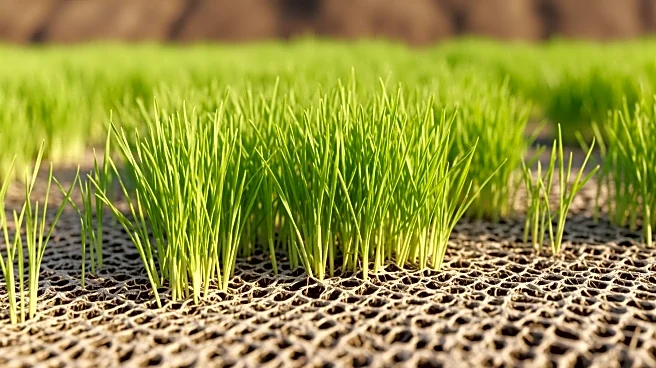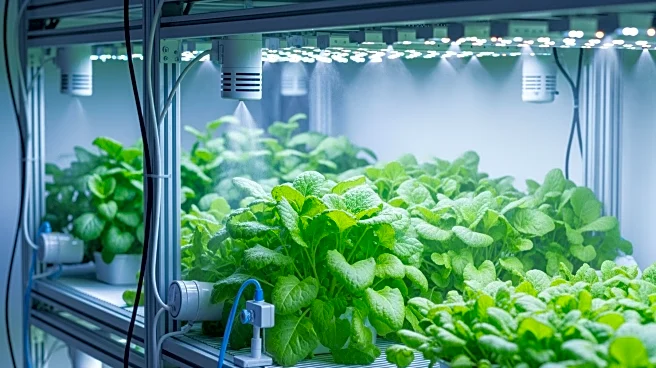What's Happening?
The Agriculture Ministry in Fiji is promoting climate-smart agriculture through the implementation of Juncao Technology. This initiative was highlighted during a regional workshop in Nadi, which focused on solutions for poverty, climate change, infrastructure
resilience, and sustainable development. Filimoni Vosarogo, Minister for Lands and Mineral Resources and Acting Minister for Agriculture and Waterways, emphasized the benefits of Juncao Technology in strengthening rural livelihoods, boosting food security, and equipping communities to withstand climate shocks. Fiji is part of a global network applying this technology in over 100 countries, with significant expansion across the Pacific region. Since 2014, Fiji's Juncao Technology Demonstration Centre has introduced various mushroom species and grass varieties, aiming to commercialize production, improve livestock feed, empower women and youth, and restore soil. The program has reached thousands of farmers and trained numerous technicians, contributing to reduced mushroom imports and enhanced food system resilience.
Why It's Important?
The advancement of climate-smart agriculture in Fiji is crucial for enhancing food security and resilience against climate change impacts. By adopting Juncao Technology, Fiji is reducing its reliance on imports and strengthening its agricultural sector. This initiative supports sustainable development goals by empowering local communities, particularly women and youth, and promoting environmentally friendly farming practices. The regional collaboration signifies a strong commitment to addressing climate change and fostering sustainable agriculture across the Pacific. The involvement of UN agencies and technical experts underscores the importance of international cooperation in tackling global challenges. The program's success could serve as a model for other regions facing similar environmental and economic challenges.
What's Next?
The ongoing efforts to commercialize Juncao Technology in Fiji are expected to continue, with a focus on expanding production bases and increasing the number of trained technicians. The regional workshop indicates a commitment to further collaboration among Pacific nations, potentially leading to more widespread adoption of climate-smart agricultural practices. Continued support from international partners, including China, will be essential in scaling up these initiatives. The program's success may encourage other countries to explore similar technologies, contributing to global efforts in combating climate change and promoting sustainable development.















